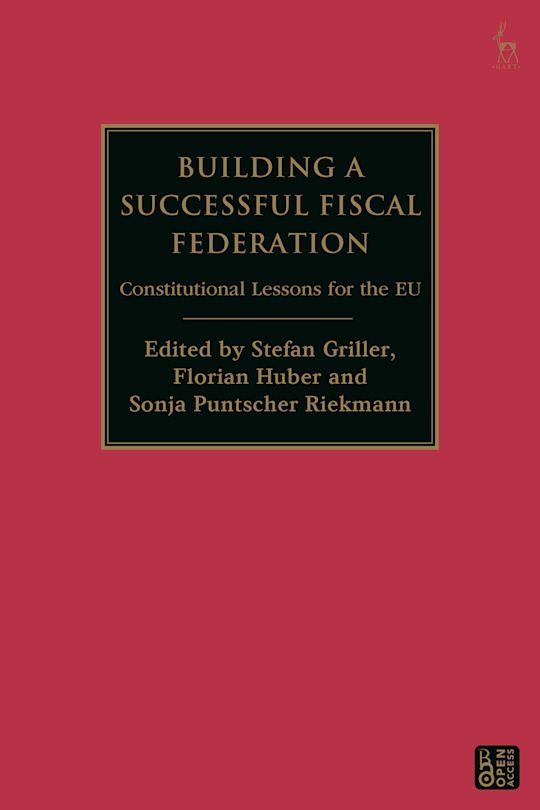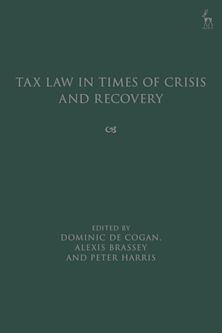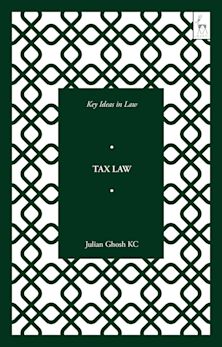Building a Successful Fiscal Federation
Constitutional Lessons for the EU
Stefan Griller (Anthology Editor) , Florian Huber (Anthology Editor) , Sonja Puntscher Riekmann (Anthology Editor)
- Open Access
Building a Successful Fiscal Federation
Constitutional Lessons for the EU
Stefan Griller (Anthology Editor) , Florian Huber (Anthology Editor) , Sonja Puntscher Riekmann (Anthology Editor)
- Open Access
Payment for this pre-order will be taken when the item becomes available
This product is usually dispatched within 10-14 days following the publication date
- Delivery and returns info
-
Free UK delivery on orders £30 or over
Description
This open access book analyses the fiscal constitutions of developed, democratic Western federations that can offer a model for a future EU fiscal federalism.
The 2009-18 sovereign debt crisis revealed the urgency to overhaul the fiscal architecture of the EU to protect the Eurozone. In the book, national experts analyse the fiscal architecture of Australia, Austria, Belgium, Canada, Germany, Switzerland, and the USA as key examples of federated entities that exercise autonomy in fiscal matters. Throughout their histories, these federations have faced political clashes between centre and periphery or among sub-federal entities which are reminiscent of current conflicts in the EU. Moreover, in times of crisis such as wars, the COVID-19 pandemic, or asymmetric economic shocks, their fiscal systems have been put under stress in comparable ways to the EU.
An interdisciplinary team of lawyers, political scientists, and economists uses the analysis of the sample federal states to provide concrete reform suggestions applicable to the EU. Thus, the book offers food for thought for researchers and advanced students, as well as for practitioners in the areas of administration and politics, to make the EU fiscal architecture more resilient in the face of future crises.
The ebook editions of this book are available open access under a CC BY-NC-ND 4.0 licence on bloomsburycollections.com.
Table of Contents
Part I: Fiscal Federalism in a Wider World
1. Australia, Nicholas Aroney (Curtin University, Australia) and Alan Fenna (Curtin University, Australia)
2. Canada, André Lecours (University of Ottawa, Canada), Daniel Béland (McGill University, Canada), Vanessa MacDonnell (University of Ottawa, Canada), Peter Oliver (University of Ottowa, Canada), and Trevor Tombe (University of Calgary, Canada)
3. Switzerland, Sean Müller (University of Lausanne, Switzerland)
4. United States of America, Jonathan Rodden (Stanford University, USA)
Part II: Fiscal Federalism in EU Member States
5. Austria, Franz Fallend (University of Salzburg, Austria), Rainer Palmstorfer (University of Linz, Austria), and Hannes Winner (University of Salzburg, Austria)
6. Belgium, Willem Sas (University of Stirling, UK), Damien Piron (University of Liège, Belgium), André Decoster (Catholic University Leuven, Belgium), and Patricia Popelier (University of Antwerp, Belgium)
7. Germany, Natalie Behnke (Technical University Darmstadt, Germany), Christian Bender (University of Leipzig (Germany), Mario Hesse (University of Leipzig, Germany), Simon Kempny (University of Bielefeld, Germany), Fabio Lennard Botta (University of Leipzig, Germany), Thomas Lenk (University of Leipzig, Germany), and Sebastian Plesdonat (University of Bielefeld, Germany)
Part III: Fiscal Federalism in the EU?
8. Analysis of the Existing EU System: Is This a Fiscal Federal System? Corinna Dornacher (University of Passau, Germany), Stefan Griller (Vienna University of Economics and Business, Austria), Florian Huber (University of Salzburg, Austria), Sonja Puntscher Riekmann (SCEUS, Austria), and Ivana Skazlic (Council of European Municipalities and Regions, Austria)
9. Lessons to be Learnt from Our Model Fiscal Federations, Corinna Dornacher (University of Passau, Germany), Stefan Griller (Vienna University of Economics and Business, Austria), Florian Huber (University of Salzburg, Austria), Sonja Puntscher Riekmann (SCEUS, Austria), and Ivana Skazlic (Council of European Municipalities and Regions, Austria)
Part IV: Conclusion: Political Choices Based on Principled Reflection
Corinna Dornacher (University of Passau, Germany), Stefan Griller (Vienna University of Economics and Business, Austria), Florian Huber (University of Salzburg, Austria), Sonja Puntscher Riekmann (SCEUS, Austria), and Ivana Skazlic (Council of European Municipalities and Regions, Austria)
Product details
| Published | 19 Feb 2026 |
|---|---|
| Format | Hardback |
| Edition | 1st |
| Extent | 544 |
| ISBN | 9781509988655 |
| Imprint | Hart Publishing |
| Dimensions | 234 x 156 mm |
| Publisher | Bloomsbury Publishing |




































